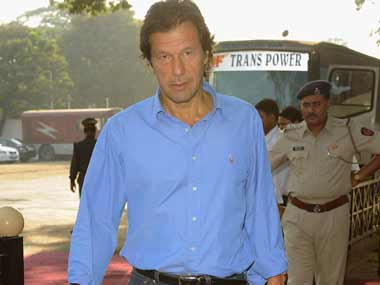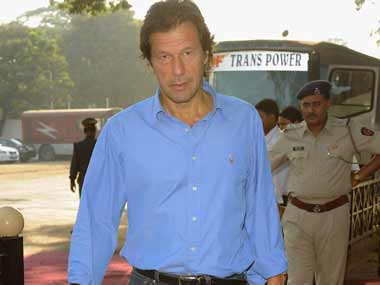With the stroke of midnight on Monday, campaigning for the Pakistan general elections—rallies, fights and the usual promises—ended. It’s probably not the last day for a good shootout between rival parties, but that’s, strictly speaking, not under the control of the Election Commissioner. With general elections just a day away, the focus of attention of both national and international media will naturally be the state of affairs in the ‘kingmaker’ that is the province of Punjab. [caption id=“attachment_2660426” align=“alignleft” width=“380”]
 File image of Imran Khan. Getty Images.[/caption] The province’s status arises from the fact that as the most populous state, it has the largest number of seats in the National Assembly (141). It also has the largest number of business families, who have invested directly and indirectly in the country’s politics. An example of this is, of course, the Sharif family, but there are others like Mian Mohammad Nasha, head of the powerful Nishat group, with assets worth more than $9.6 billion. Gap Inc and Levi Strauss for instance, are major customers. Gap alone buys 8-10 million metres of Nishat cloth a year. Another example is Asad Umar, the contender from Islamabad, a corporate boss-turned-politician. There are several others of the same ilk, but the point is that Gallup predictions and poll prognostications will only go so far. The polls in certain parts of Punjab have always swung largely according to the survival books of these big businesses, once the playing field of the Sharif family. This vote bank is unlikely to shift much, but the fact remains that big business prefers candidates who are looked upon kindly by the establishment. It’s no accident that Asad Umar is campaigning on a Pakistan Tehreek-e-Insaf (PTI) ticket. A second class of people—particularly in specific districts which were once the stronghold of the Pakistan Muslim League-Nawaz—prefer a pro-establishment candidate. The Sharif family’s central plank of victimisation by the army is not likely to win friends and influence people in areas such as Chakwal, Jhelum and Rawalpindi. These are the main recruiting centres for the army, and criticism of the Deep State is unlikely to sit well when sons, brothers and fathers are receiving their pay cheques from the army coffers. There are also the retirees settled in these districts, and one of them, a Major (retd) Tahir Sadiq Khan is—no surprise—a PTI candidate. The shift from the PML(N) to the PTI has occurred in these provinces. A third interesting and relatively new aspect to Punjab is the rise of its middle class.
Credit Suisse reported some years ago that Pakistan has the 18th largest middle class in the world. This is also backed by the State Bank of Pakistan, which estimates the country’s middle to upper class numbers at nearly 42 percent of the population. The more mundane Household Integrated Economic Survey of Pakistan shows a slower growth, but identifies Punjab as having the largest middle class share (59 percent), and that too urban. This has, so far, been the natural constituency of Imran Khan’s PTI, which based itself on educated and fairly well-heeled voters who fervently backed his anti-corruption campaign. This is all very well in terms of Facebook campaigns. But this requires a specific shift in attitudes on the ground, and that brings in the fourth factor: The established fact that major politicians generally win from the same constituency, and do this for years on end. For instance, former prime minister Shahid Khaqan Abbasi and his family have been winning from Rawalpindi district since 1985: Barring just one instance in 2002. This is not just dynastic politics. It is the perception of the voters that their fortunes lie in the continued prosperity of the family that represents them, an aspect also common in India. This is a factor that should—by all natural laws of electoral practice—have benefitted the PLM(N). But even here, the Deep State has interfered as much as it could. The surprise detention of Hanif Abbasi, a key official of the PML(N) in Punjab, in an ephedrine quota case days before the elections is one example. Abbasi’s loss is the gain of Sheikh Rashid, an out and out establishment proxy. Though the Lahore High Court upheld the decision to stay elections in the constituency, it is these small games of the establishment that have largely gone unnoticed outside the country, and by most analysts in India.
If the PTI is able to jump from eight seats to a majority: Or even four times that number, then there would be clear evidence the elections have been rigged outright.
Advertisement
End of Article


)

)
)
)
)
)
)
)
)



